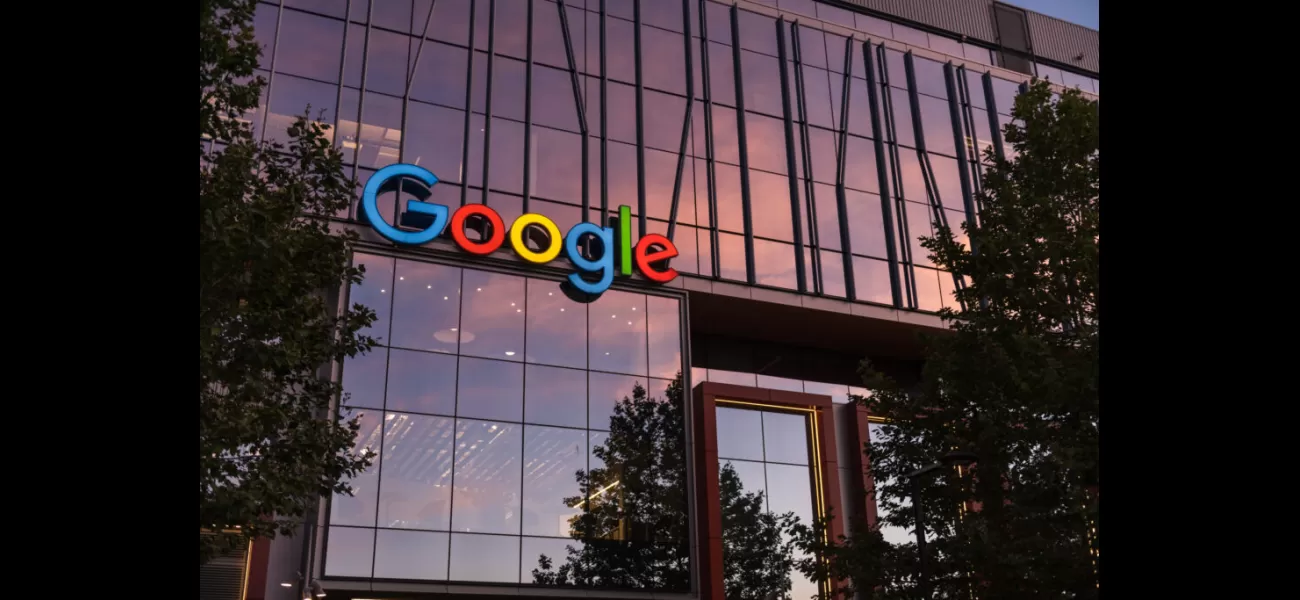Black and deaf employee Jalon Hall is suing Google for discrimination, claiming he faced bias based on his race and disability.
Google's lone Black and Deaf employee, Jalon Hall, has sued for discrimination, citing both race and disability discrimination.
March 9th 2024.

Jalon Hall, Google’s first and only Black and Deaf employee, has recently taken legal action against her employer, alleging discrimination based on her race and disability. According to an article in Wired, Hall claims that Google failed to provide her with necessary accommodations, such as sign language interpretation, which greatly impacted her ability to perform her duties as a content moderator for YouTube.
Hall’s journey with Google began in 2020 when she joined a new in-house moderation team called Wolverine, located in a suburb of Detroit. Despite being promised sign language interpretation during the hiring process, Hall was allegedly restricted from accessing an interpreter due to confidentiality concerns. This restriction greatly hindered her performance as a content moderator for YouTube.
In December 2022, Hall filed a discrimination lawsuit against Google, citing both racism and audism. Google responded by seeking dismissal on procedural grounds, arguing that the claims were brought too late. However, the company did not directly address Hall’s accusations.
While Google prides itself on its image of inclusivity and diversity, Hall’s experiences reveal challenges faced by employees who are Black or disabled within the tech giant. With a workforce of nearly 183,000 people, Google has faced criticism for its internal culture that seems to favor individuals who fit traditional tech industry norms.
Hall’s allegations are supported by over two dozen internal documents obtained by Wired and interviews with her colleagues. She claims that Google has used her as a token representative of a diverse workplace on public and online platforms. Last year, she was praised on the company’s LinkedIn page for “helping expand opportunities for Black Deaf professionals!” and on Google’s Instagram for making #LifeAtGoogle more inclusive. However, Hall asserts that the company needs to do more than just use her for their own image; they need to make real changes within the workplace.
The lawsuit also highlights a larger issue of the underrepresentation of Black and disabled employees at Google. Black women, who make up only 2.4 percent of Google’s US workforce, reportedly leave the company at a higher rate than women of other races.
Google’s response to Hall’s lawsuit includes arguments for dismissal based on procedural timing, but the company has not addressed the specific allegations. This case brings attention to the importance of companies like Google reassessing their commitment to creating an inclusive workplace, especially for individuals with disabilities.
Despite her difficulties at Google, Hall remains hopeful and determined to instigate positive change within the company. She has become an advocate for the Black Deaf community within Google and continues to fight for inclusivity and diversity within the workplace.
This case also highlights the importance of diversity and inclusion in the tech industry. Google’s recent purchase of an AI product from a Black-woman-owned EdTech company serves as a positive step towards creating a more inclusive and diverse workforce.
Hall’s journey with Google began in 2020 when she joined a new in-house moderation team called Wolverine, located in a suburb of Detroit. Despite being promised sign language interpretation during the hiring process, Hall was allegedly restricted from accessing an interpreter due to confidentiality concerns. This restriction greatly hindered her performance as a content moderator for YouTube.
In December 2022, Hall filed a discrimination lawsuit against Google, citing both racism and audism. Google responded by seeking dismissal on procedural grounds, arguing that the claims were brought too late. However, the company did not directly address Hall’s accusations.
While Google prides itself on its image of inclusivity and diversity, Hall’s experiences reveal challenges faced by employees who are Black or disabled within the tech giant. With a workforce of nearly 183,000 people, Google has faced criticism for its internal culture that seems to favor individuals who fit traditional tech industry norms.
Hall’s allegations are supported by over two dozen internal documents obtained by Wired and interviews with her colleagues. She claims that Google has used her as a token representative of a diverse workplace on public and online platforms. Last year, she was praised on the company’s LinkedIn page for “helping expand opportunities for Black Deaf professionals!” and on Google’s Instagram for making #LifeAtGoogle more inclusive. However, Hall asserts that the company needs to do more than just use her for their own image; they need to make real changes within the workplace.
The lawsuit also highlights a larger issue of the underrepresentation of Black and disabled employees at Google. Black women, who make up only 2.4 percent of Google’s US workforce, reportedly leave the company at a higher rate than women of other races.
Google’s response to Hall’s lawsuit includes arguments for dismissal based on procedural timing, but the company has not addressed the specific allegations. This case brings attention to the importance of companies like Google reassessing their commitment to creating an inclusive workplace, especially for individuals with disabilities.
Despite her difficulties at Google, Hall remains hopeful and determined to instigate positive change within the company. She has become an advocate for the Black Deaf community within Google and continues to fight for inclusivity and diversity within the workplace.
This case also highlights the importance of diversity and inclusion in the tech industry. Google’s recent purchase of an AI product from a Black-woman-owned EdTech company serves as a positive step towards creating a more inclusive and diverse workforce.
[This article has been trending online recently and has been generated with AI. Your feed is customized.]
[Generative AI is experimental.]
0
0
Submit Comment





